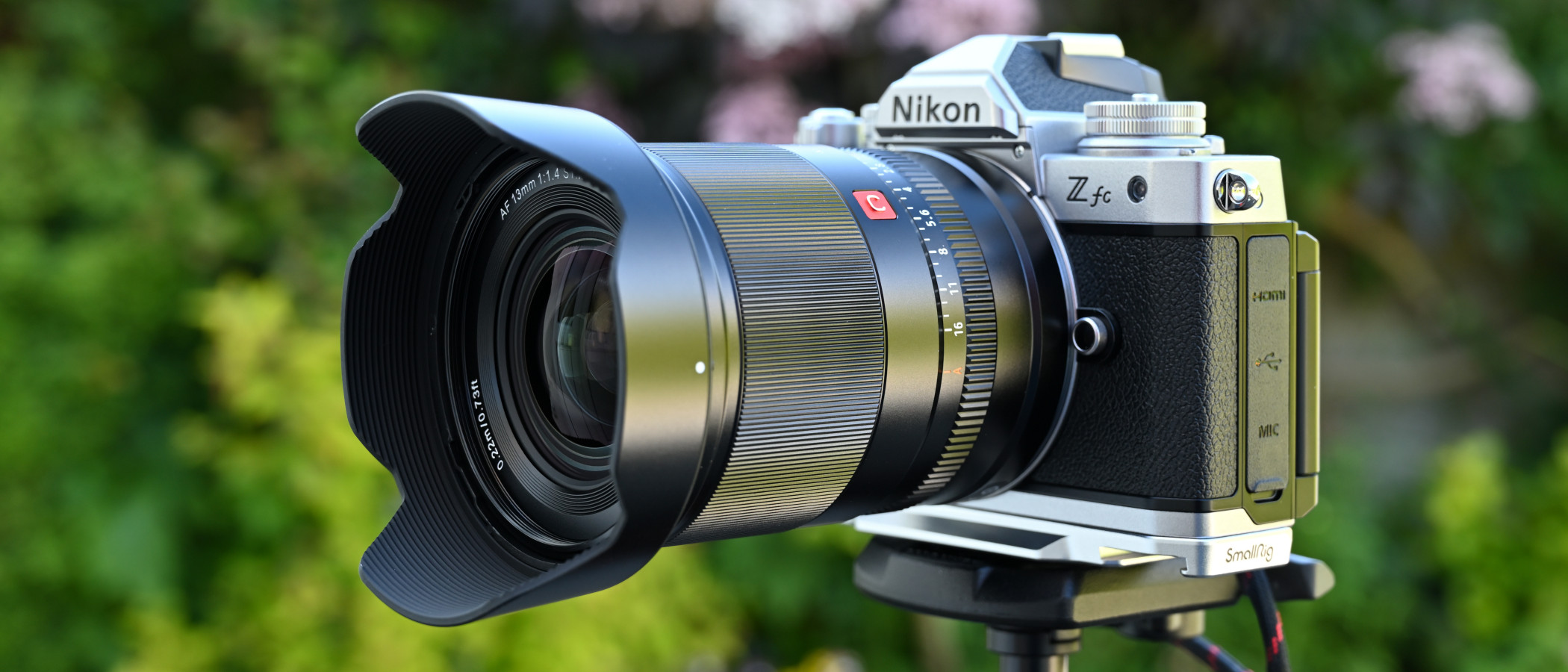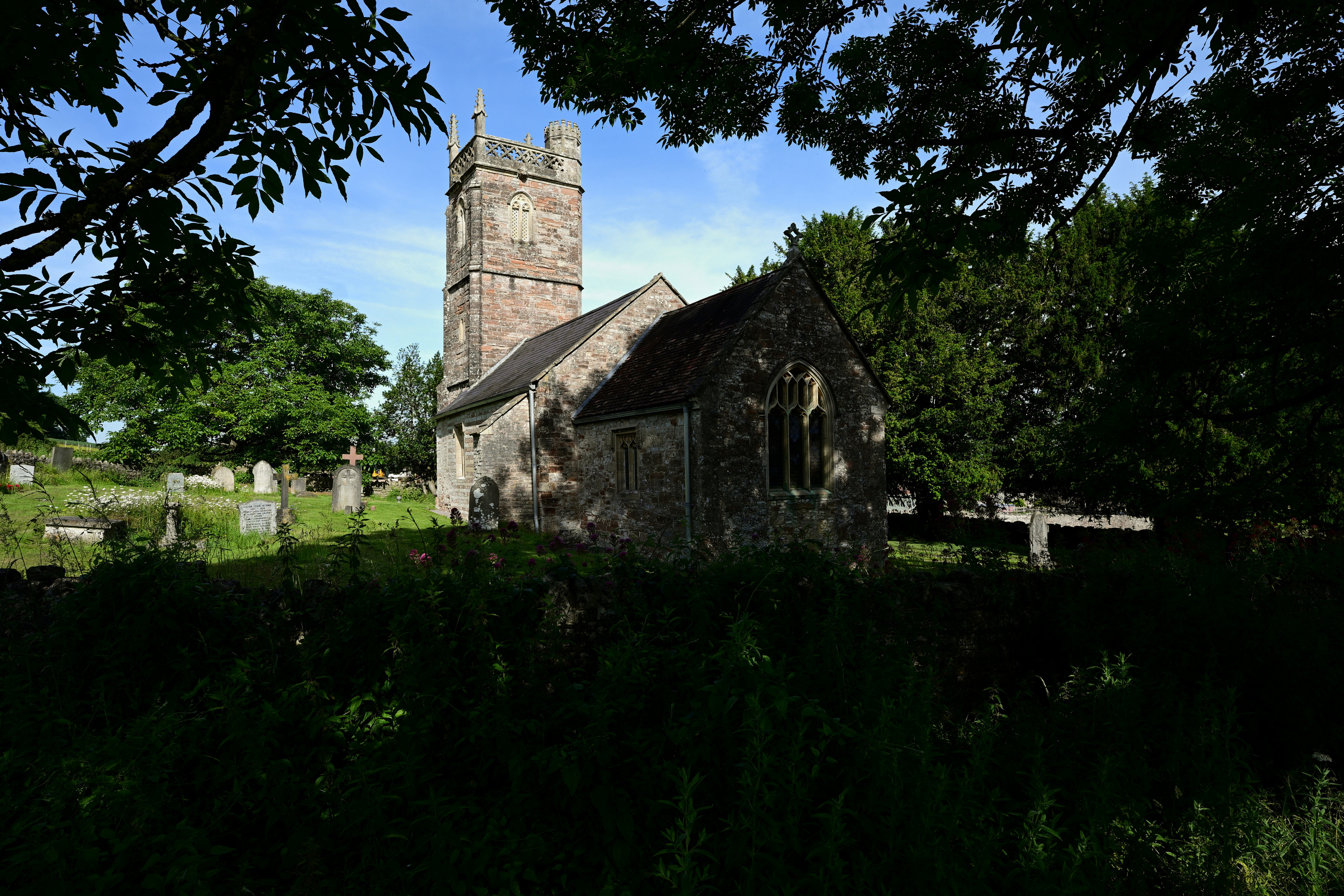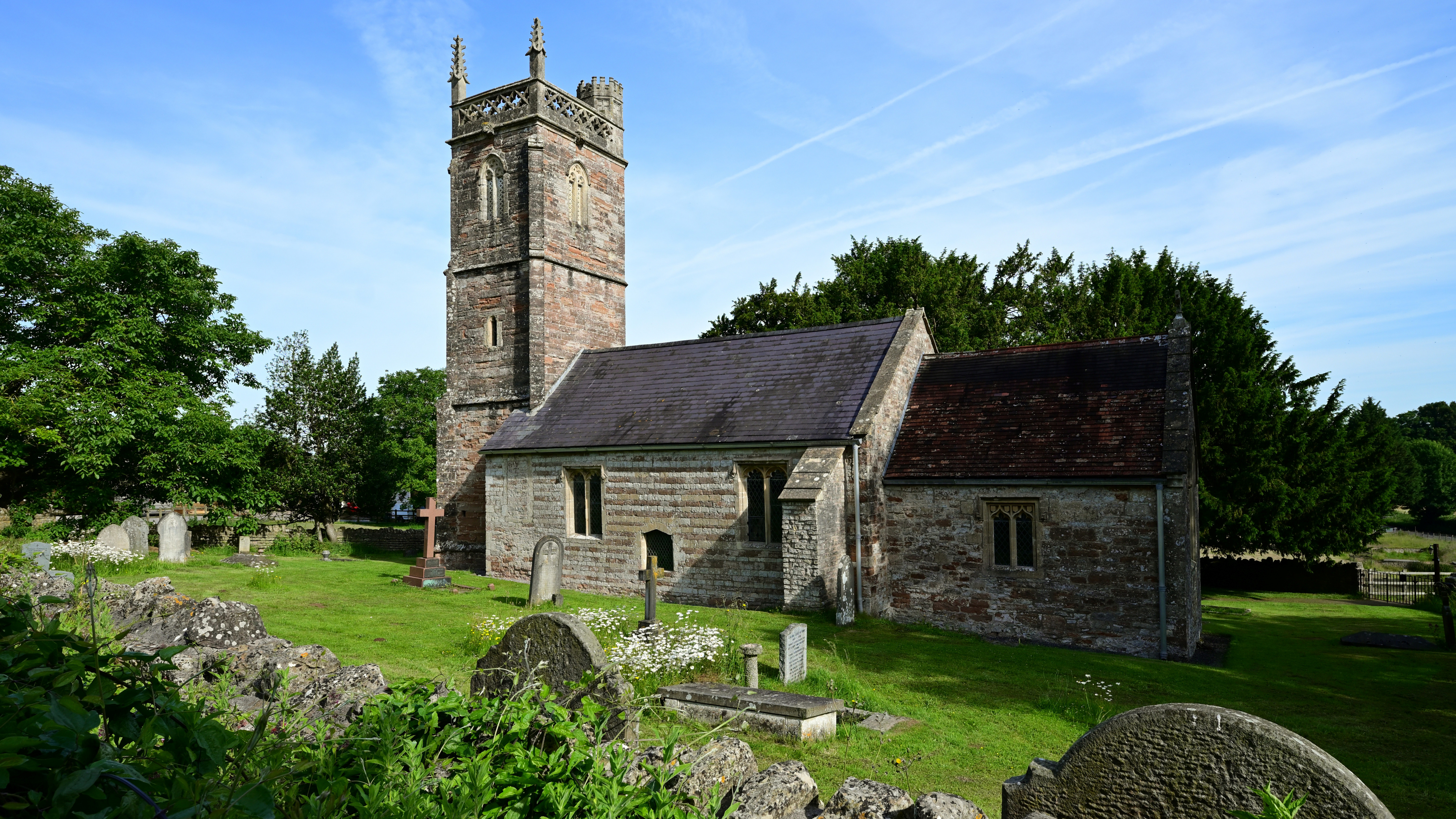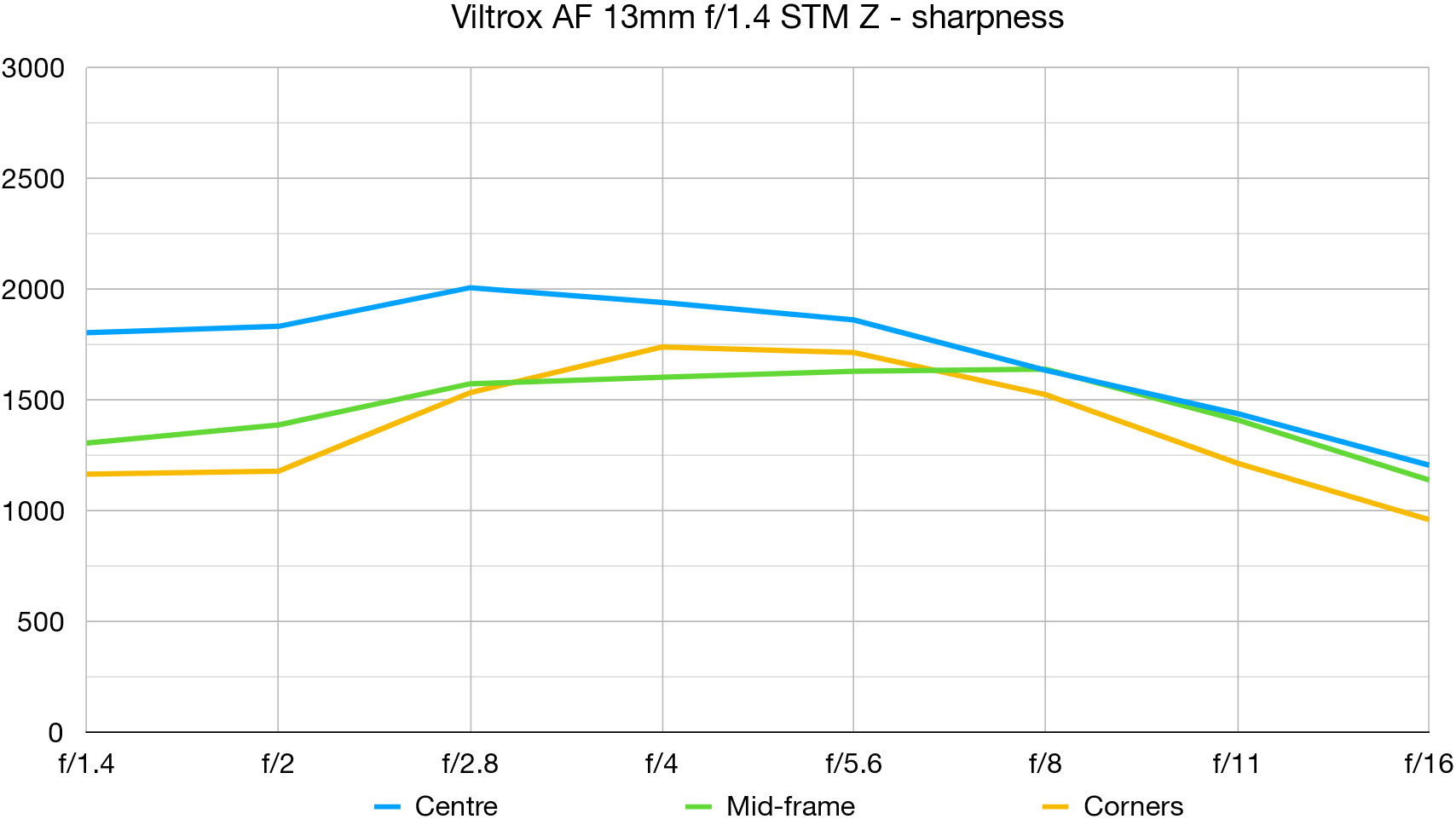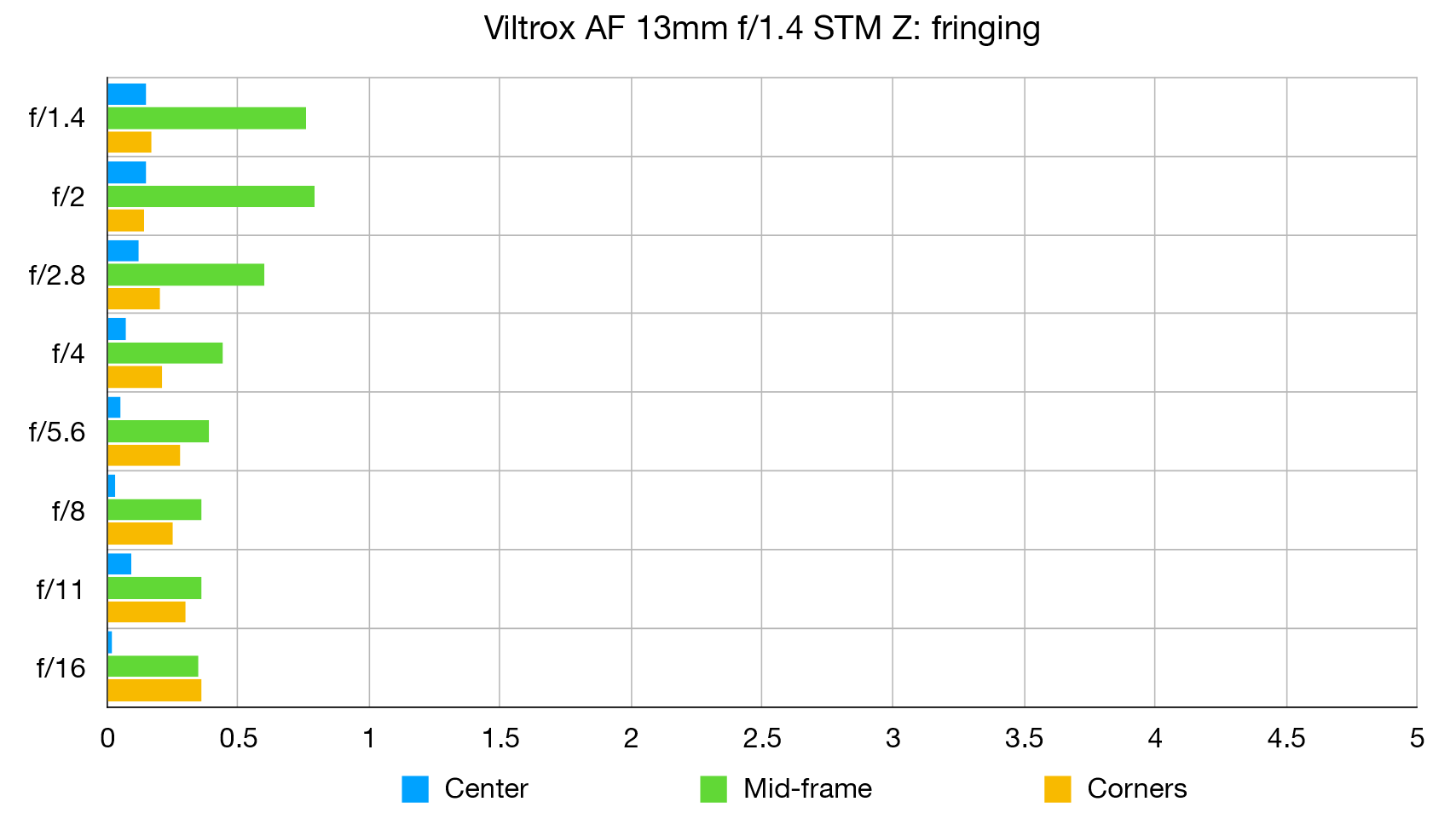Digital Camera World Verdict
Smartly turned out with a metal casing and multiple weather-seals, this Viltrox APS-C format lens is available in Fujifilm X, Nikon Z and Sony E mount options. Delivering a viewing angle of 94.1 degrees, it has an ‘effective’ focal length of about 20mm in full-frame terms, making it ideal for architectural interiors, sweeping landscapes and vlogging, while its fast f/1.4 aperture adds astrophotography to the hit list. Impressive image quality is backed up by fast and consistently accurate autofocus, making the lens great value at the price.
Pros
- +
Impressive all-round performance
- +
Solid metal casing
- +
Good handling
Cons
- -
No ‘auto’ aperture ring lock
- -
No aperture click-step option
- -
No AF/MF focus mode switch
Why you can trust Digital Camera World
Backed by a crowdfunding campaign, the Viltrox AF 13mm F1.4 Z is an APS-C format ultra-wide prime lens for Fujifilm X, Nikon Z and Sony E mount cameras. It builds on the success of the company’s existing trio of Viltrox 23mm, 33mm and 56mm f/1.4, adopting the same aperture rating but naturally giving you a wider viewing angle. In ascending order, the four lenses give classic ‘effective’ focal lengths of approximately 20mm, 35mm, 50mm and 85mm in full-frame terms.
Specifications
Mount: Fujifilm X, Nikon Z, Sony E
Full frame: No
Autofocus: Yes
Image stabilization: No
Lens construction: 14 elements in 11 groups
Angle of view: 94.1 degrees
Diaphragm blades: 9
Minimum aperture: f/16
Minimum focusing distance: 0.22m
Maximum magnification ratio: 0.1x
Filter size: 67mm
Dimensions: 74x90mm
Weight: 420g
Key features
Focal length and aperture speed are arguably the lens’s main features. You can often find that a standard zoom lens runs out of viewing width at its shortest setting, and this 13mm prime gives you a generously wider view for shoehorning more into the frame. Meanwhile, the fast f/1.4 aperture sucks in a lot of light, ideal for indoor architectural shooting without flash and shooting a starry night sky, as well as enabling you to freeze motion in low lighting conditions. Thanks to the short minimum focus distance of just 22cm (a bit under 9 inches) the f/1.4 aperture also enables a fairly tight depth of field when shooting close-ups.
The optical path is quite complex, featuring 14 elements in 11 groups. It includes two aspherical elements, four ED (Extra-low Dispersion) elements and two HR (High Refractive index) elements. The front element is oversized to help minimize distortion and vignetting.
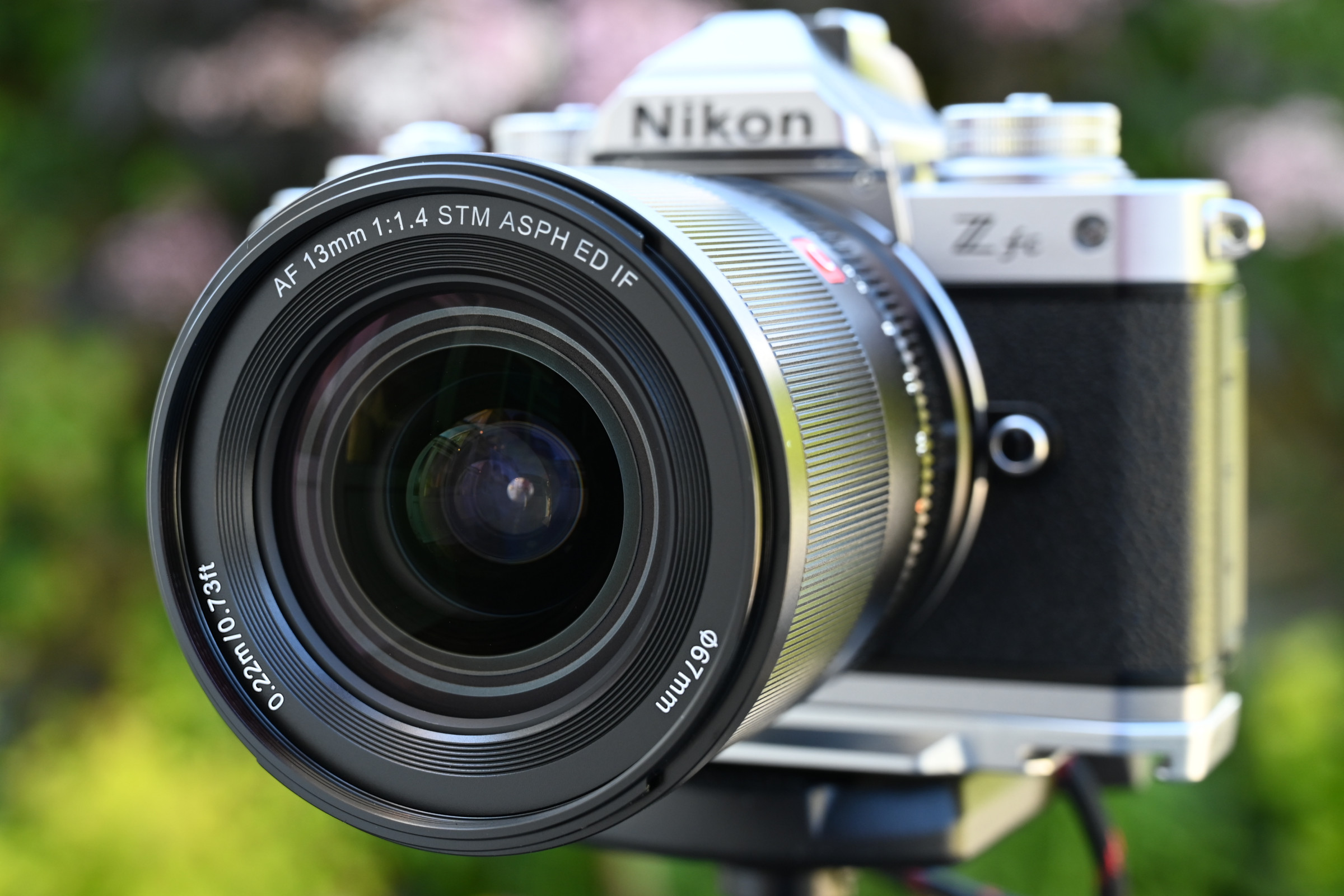
As with the other lenses in the series, the 13mm has a fast and virtually silent linear stepping motor to drive autofocus. The action of the manual focus control ring can be assigned to alternative functions via in-camera menus and works with smooth precision. Also like the other lenses, this one features an aperture control ring, which is nominally marked in one-third f/stops. It’s permanently ‘de-clicked’ with no switchable click-step option, which is ideal for video capture, less so for stills.
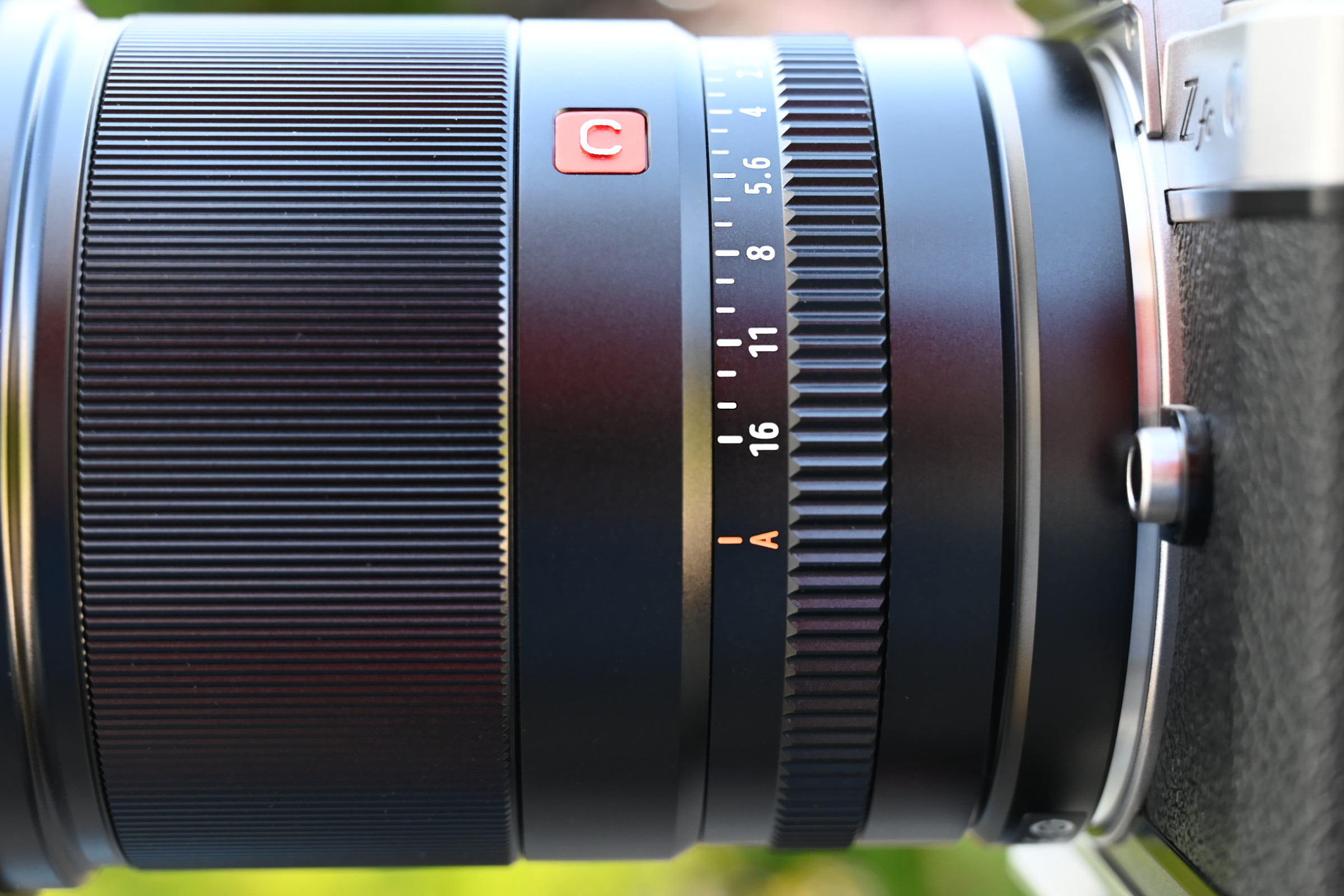
Many ultra-wide-angle lenses have an integrated hood to protect a bulbous front element but the Viltrox comes with a separate bayonet-fit, petal-shaped hood. A major upside of this is that it also features a filter attachment thread, which has a modest 67mm diameter.
Build and handling
For an ultra-wide-angle lens, the Viltrox is compact and lightweight, measuring 74x90mm and weighing in at 420g. That’s pretty remarkable considering the fast f/1.4 aperture rating. Unlike previous lenses in the series that we’ve seen, this one includes multiple weather-seals including a rubber gasket on the mounting plate. More akin to that of its siblings, the rear of the plate features a USB-C port for applying firmware updates. Overall build quality feels solid and substantial, based on a sturdy metal barrel.
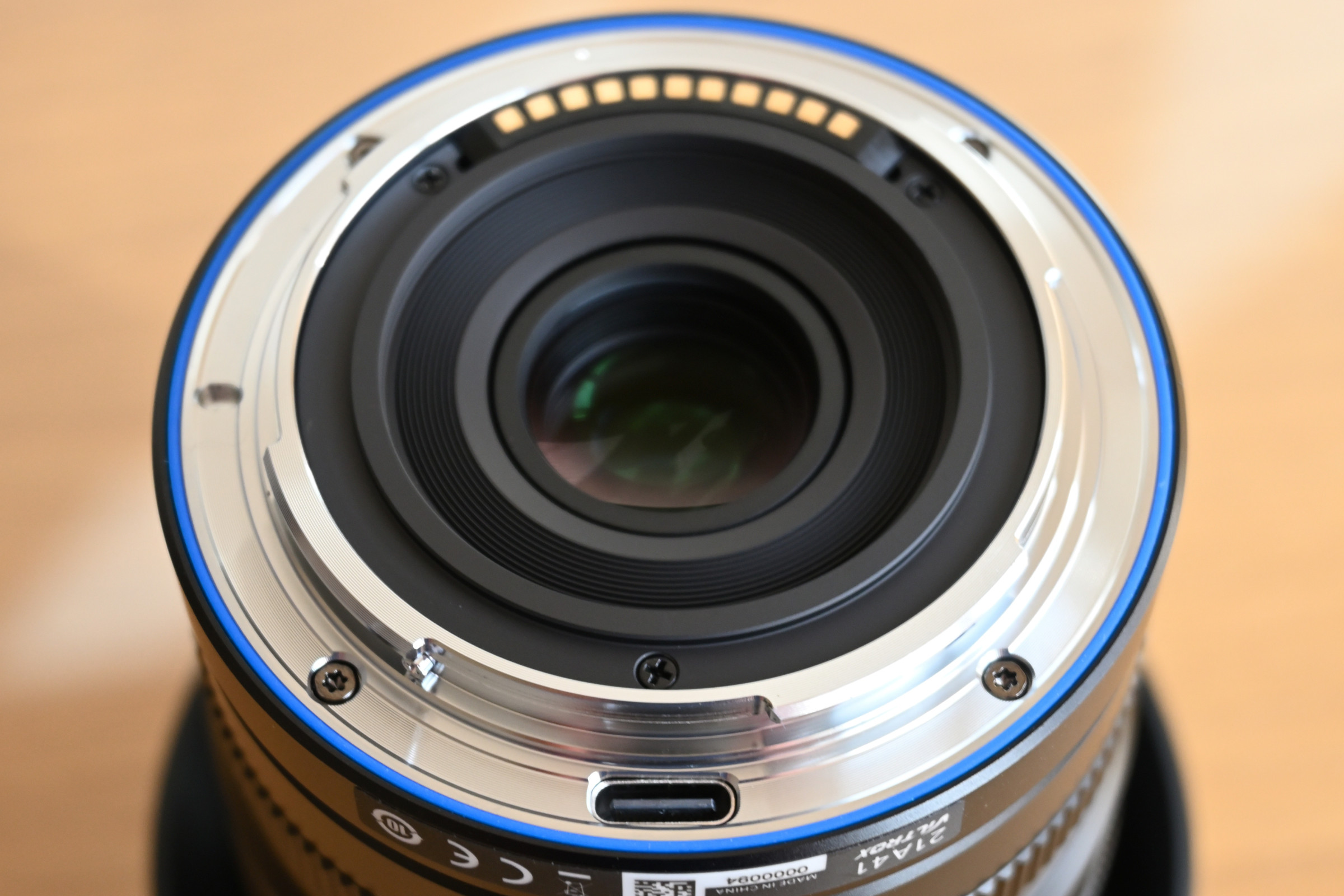
Handling is natural and intuitive. Our only slight complaint is that there’s no locking switch for the aperture ring. A little care is needed, therefore, not to nudge it away from its ‘auto’ position when you’re controlling the aperture from the host camera.
The best camera deals, reviews, product advice, and unmissable photography news, direct to your inbox!
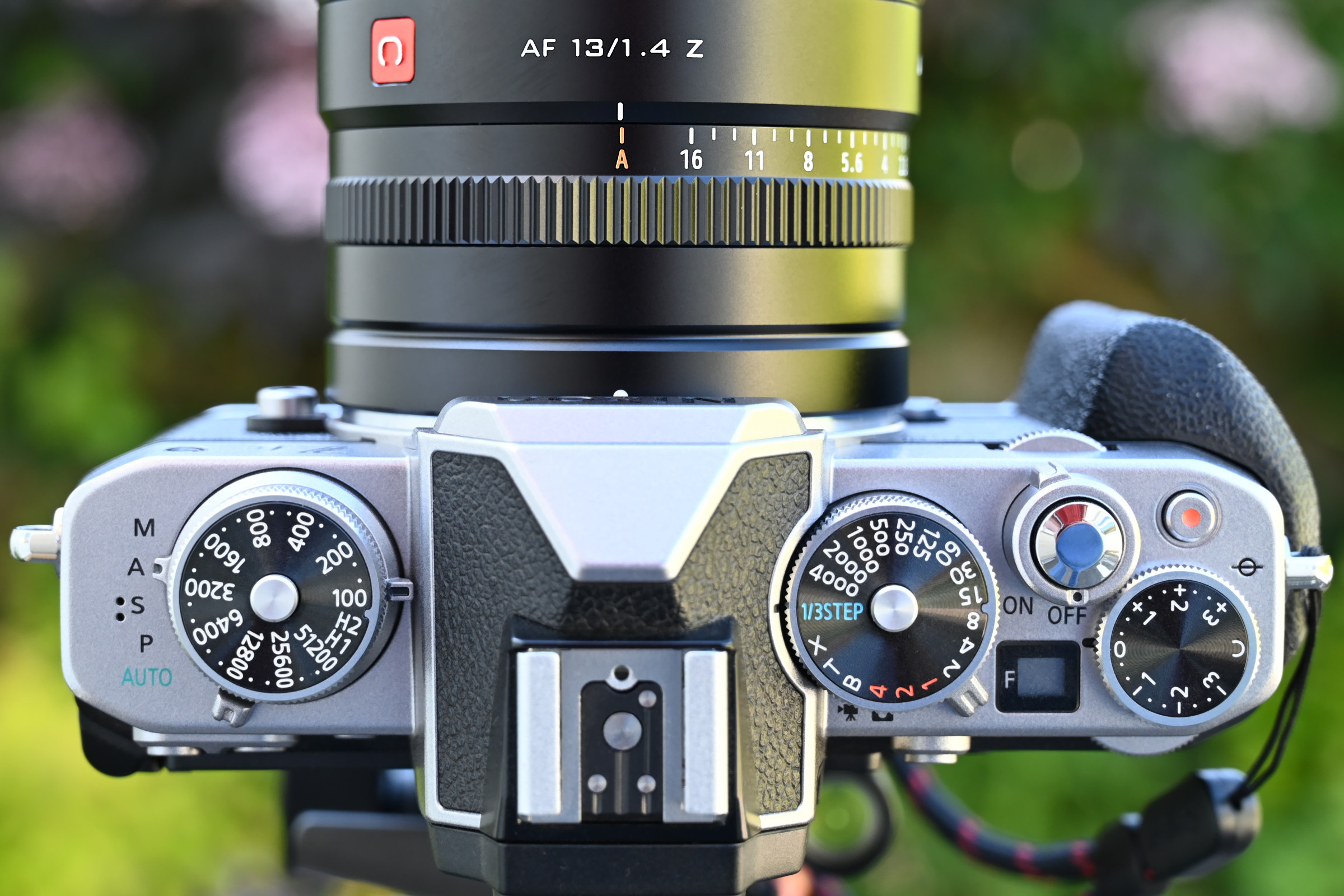
Performance
Autofocus proved fast and consistently accurate during our testing with the Z-mount edition on a Nikon Z fc body. Center-sharpness is excellent even at the widest aperture of f/1.4, and edge-sharpness follows suit at f/2.8. A slight softening due to diffraction at narrow apertures starts to take effect at f/8.
Color fringing is very negligible, there’s very little distortion for such a wide-angle lens, and resistance to ghosting and flare is impressive. Overall performance and image quality are highly impressive.
Sample images
Lab results
We run a range of lab tests under controlled conditions, using the Imatest Master testing suite. Photos of test charts are taken across the range of apertures and zooms (where available), then analyzed for sharpness, distortion and chromatic aberrations.
We use Imatest SFR (spatial frequency response) charts and analysis software to plot lens resolution at the center of the image frame, corners and mid-point distances, across the range of aperture settings and, with zoom lenses, at four different focal lengths. The tests also measure distortion and color fringing (chromatic aberration).
Sharpness:
Center-sharpness is excellent from the word go, at f/1.4, and even the extreme edges and corners of the frame come on strong at just f/2.8.
Fringing:
There’s minimal axial chromatic aberration even when shooting wide-open, while lateral chromatic aberration is entirely negligible, right into the corners of the image frame.
Distortion: -0.47
Even without applying any correction, barrel distortion is extremely minimal for such a wide-angle lens.
Verdict
Smartly turned out with a metal casing and multiple weather-seals, this Viltrox APS-C format lens is available in Fujifilm X, Nikon Z and Sony E mount options. Delivering a viewing angle of 94.1 degrees, it has an ‘effective’ focal length of about 20mm in full-frame terms, making it ideal for architectural interiors, sweeping landscapes and vlogging, while its fast f/1.4 aperture adds astrophotography to the hit list. Impressive image quality is backed up by fast and consistently accurate autofocus, making the lens great value at the price.
Read more:
• Best camera lenses to get
• Best Canon lenses
• Best Nikon lenses
• Best Sony lenses
Matthew Richards is a photographer and journalist who has spent years using and reviewing all manner of photo gear. He is Digital Camera World's principal lens reviewer – and has tested more primes and zooms than most people have had hot dinners!
His expertise with equipment doesn’t end there, though. He is also an encyclopedia when it comes to all manner of cameras, camera holsters and bags, flashguns, tripods and heads, printers, papers and inks, and just about anything imaging-related.
In an earlier life he was a broadcast engineer at the BBC, as well as a former editor of PC Guide.

